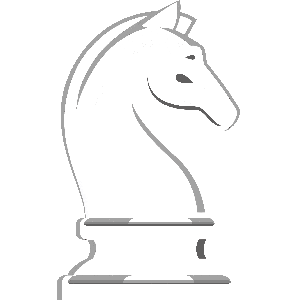As a longtime libertarian and free-market advocate, you might think I’d be the last person to extol the virtues of socialism. But after careful thought, there may be a strong case for socialism in America. A case that even conservative Republicans would support. But it may not be what you think. So, make sure you read to the end.
What is Socialism?
“A political and economic theory of social organization which advocates that the means of production, distribution, and exchange should be owned or regulated by the community as a whole.”
Oxford Dictionary
- land (all physical resources, including iron ore, timber, gold, etc.)
- labor (all human effort for wages)
- capital (all investment savings, wealth)
- entrepreneurial decision-making (what products and services get produced)
In a socialist state, the government decides …
- who owns the land and natural resources
- what products and services are produced
- who gets which jobs and how much they are paid
- who gets loans and at what interest rate
- what prices are charged for goods and services
Citizens work where the government mandates. They then turn over all productivity (wages) to the government in exchange for goods and services.
Doesn’t sound much like freedom. But it does sound like a major power grab for the government’s “ruling class.” Since the government makes all the economic decisions, many government employees are necessary to analyze and implement myriad decisions and policies. An army of bureaucrats “guess” at what is needed and what should be “fairly” charged. The problem is, they always get it wrong. That’s why surplusses and shortages are endemic in countries that embrace socialism. If for instance, a bureaucrat sets the price of shoes too low, the first person in line buys all the shoes, then sells them on the black market for the correct price. If the same bureaucrat sets the price too high, the shoes sit on the shelves and nobody buys them.
Worse, making entrepreneurial decisions centrally always leads to vast misallocations of resources. Bureaucrats are constantly producing things people just don’t want, leading to waste. At the same time, they miss opportunities to produce things that people really want, such as double caramel skim macchiato lattes.
What is Capitalism?
“An economic and political system in which a country’s trade and industry are controlled by private owners for profit, rather than by the state.”
Oxford Dictionary
Capitalism, by contrast, is the definition of freedom. It’s a natural phenomenon and requires no government force for it to function perfectly. Capitalism is what happens when individuals bargain freely, exchanging one item for another at an agreed-upon price
- whether to buy land or resources
- what good or service they will or will not produce
- what is a fair wage for work in question
- whether to lend money and at what interest rate
- what constitutes a fair price
In a capitalist society, millions of people decide daily what to buy, what to produce, and how much to pay. Private banks decided who gets loans and at what interest rate. Private individuals decide what products get produced and at what price.
Unlike socialism, capitalism disperses economic power among millions of individuals and private corporations. The price of all goods is fluid. As people consume the things they really want, that demand increases prices. The higher price signals producers to produce more to take advantage of increasing profit margins. Eventually, more producers are enticed into the industry. The increased supply forces prices to fall. The end result is a perfect price equilibrium and total economic efficiency.
Capitalist economies have created more wealth, for more people, than any other form of economy. The United States went from a rural outpost to the most powerful economy in the world in a little over one hundred years.
Neither Capitalism Nor Socialism Exists
Both systems,
An easy way to think about it is to ask the question: “What percentage of our gross domestic product (the sum of all work done and all goods produced in a year) does the government spend every year?”. If you divide what the government spends ($7.1 trillion in 2018(1)) by what we produce – the gross domestic product ($18.9 trillion in 2018(2)), you get a percentage of 37.5% socialist, 62.5% capitalist.
These percentages are interesting. Consider that Sweden, a country widely regarded by leftists as an ideal version of socialism had government spending of approximately $140 billion in 2017. (3) Divide that by a gross domestic product of approximately $538 billion (4), and it calculates to be 26% socialist, 74% capitalist. So ironically, Sweden is actually more capitalist
Whenever the percentage of socialism crosses the 50% threshold, economies begin to crumble. The inherent inefficiencies and misallocation of resources reach a tipping point. There are simply more people “riding on the wagon” than “pulling the wagon”. Worse, once public sector jobs exceed the private sector jobs, you have more voters voting for socialism than voting for capitalism. This leads to a maelstrom of socialist policy which always ends in total economic implosion. Everyone that pays attention to history knows this. The Soviet Union, China, Cambodia, Cuba, East Germany, Ethiopia, North Korea, Poland, Romania, and most recently, Venezuela have all gone “all in” on socialist experiments and suffered catastrophic economic consequences.
So what is the case for socialism in the United States?
The answer is hiding in plain sight, the family. Families are perfectly suited for socialist policy. Since parents understand the needs and capabilities of each child, it’s easy for these “dictators” to implement a Marxist policy of: “From each according to his ability, to each according to his needs.”(6)
Families are also autocracies or oligarchies in that one or two parents hold absolute rule. This is no problem as inexperienced children need rules and boundaries. Children contribute all labor to the collective and get from their parents what they need, not necessarily what they want
- https://www.usgovernmentspending.com/spending_percent
- https://tradingeconomics.com/united-states/gross-national-product
- https://www.theglobaleconomy.com/rankings/government_spending_dollars
- https://tradingeconomics.com/sweden/gdp
- https://www.forbes.com/pictures/eglg45hljjk/countries-that-have-trie/#50195d9025d9
- https://www.goodreads.com/author/quotes/7084.Karl_Marx






3 Responses
This is a ridiculous, biased, and highly misinformed piece about the differences between capitalism and socialism!
1) The countries you stated as “socialist” are actually not really “socialist” because in those cases the government and the community were NOT one on the same. Just because a country might include “socialist” or “communist” in the name doesn’t make it so. For example, why did you leave out “Communist” China?! They are doing quite well financially speaking, no? And our precious USA has no issue doing business with them, unlike our supposed morality in not doing business with Cuba.
2) You claimed that the successful “socialist” countries are only successful because they embraced a form of capitalism as well. Well, the USA is a mixed economy as well and if Sweden is (as you claim) more capitalist than us, then by your logic, wouldn’t the USA’s greater financial wealth and success come from SOCIALISM since we are more socialist than they?
3) Your claim that the “endgame of socialism always leads to tyranny” and that “capitalism is the very epitome of freedom” are completely FALSE. There are capitalist-leaning, non-socialist countries that have had dictatorships and are just as corrupt such as countries in the Middle East, Asia, and Africa. And capitalism has probably contributed more to poverty than to wealth for all classes. Because of a free-market (without federal minimum wages), companies then are free to exploit workers of other countries (and this is also the biggest reason for out-sourcing as well). It’s a system that allows the 1% richest to influence laws, policies, and even elections! It’s the very OPPOSITE of “freedom.”
4) While pulling no punches on socialism’s supposed failures, you conveniently forgot to mention all the times your precious fickle “free market” has failed spectacularly. In the USA alone, we’ve had 14 financial recessions since the Great Depression! Capitalism has only survived so far thanks in large part to the socialist programs that pick up the slack!
PaganSun,
Thank you for reading and commenting. I’ll try to address your comments one at a time.
“This is a ridiculous, biased, and highly misinformed piece about the differences between capitalism and socialism!”
The difference between capitalism and socialism is well documented.
• Capitalism: private ownership of the means of production
• Socialism: public or government ownership of the means of production.
• The means of production= Land, Labor, Capital, Entrepreneurial decision making
This is a given.
“1) The countries you stated as “socialist” are actually not really “socialist” because in those cases the government and the community were NOT one on the same.”
Not really sure what you mean here. I didn’t identify the socialist countries mentioned …
“The Soviet Union, China, Cambodia, Cuba, East Germany, Ethiopia, North Korea, Poland, Romania, and most recently, Venezuela” (see footnote)
… Forbes Magazine did. That said, I agree with Forbes.
As stated, neither capitalism nor socialism exists in the pure state. It’s a question of degree. I define a country as socialist or capitalist based on the percentage of Gross Domestic Product (GDP) controlled or outright produced by the government.
“Just because a country might include “socialist” or “communist” in the name doesn’t make it so. For example, why did you leave out “Communist” China?! They are doing quite well financially speaking, no?”
Of course, you are right. A country can call itself communist, socialist, or capitalist and not be “pure.” As stated, neither capitalist or socialist nations exist in the pure state. All economies are “mixed.” The question is: to what degree is a country socialist or capitalist. I consider a country socialist when over 50% of the country’s GDP is controlled or produced by its government.
With regard to China, the Chinese owe their prosperity to pockets of capitalism and entrepreneurial endeavor tolerated by the Chinese government. While private ownership is not officially legal in China, it is tolerated because of the prosperity it brings. The Chinese economic growth and prosperity is really the black market and organized crime gone amok. One of the consequences of a totalitarian government is that you always know who to bribe to get what you want. I’m no expert on the Chinese economy, but I’d be willing to bet that for every prosperous entrepreneurial endeavor, the associated government officials responsible for “overseeing the economy” are being paid “tribute” for turning a “blind eye” to private ownership.
“And our precious USA has no issue doing business with them, unlike our supposed morality in not doing business with Cuba.”
The USA doesn’t do business with China, private citizens and private companies do. As long as they don’t break any trade laws, why shouldn’t they if it profits them? I do agree we should open trade with Cuba, as we should allow free individuals and companies to trade with all countries.
2) You claimed that the successful “socialist” countries are only successful because they embraced a form of capitalism as well. Well, the USA is a mixed economy as well and if Sweden is (as you claim) more capitalist than us, then by your logic, wouldn’t the USA’s greater financial wealth and success come from SOCIALISM since we are more socialist than they?
Not sure what your point is here. Neither the US, nor Sweden are socialist countries by my definition. Both countries produce more in the private sector than in the public (government) sector.
3) Your claim that the “endgame of socialism always leads to tyranny” and that “capitalism is the very epitome of freedom” are completely FALSE. There are capitalist-leaning, non-socialist countries that have had dictatorships and are just as corrupt such as countries in the Middle East, Asia, and Africa.
Don’t confuse how a country chooses its leaders, or how corrupt a government is, with freedom. While it’s highly unlikely, it is quite possible to have a king or dictator and experience more personal freedom than that in a republic or democracy. Freedom is defined by how much of your life you personally control. In a capitalist economy, you are free to own land, choose your employer, negotiate your wage, risk your savings on investments, and gamble your savings on money-making ventures. In a socialist economy, for the most part, you are not. What difference does it make whether you have a king or a congress? The essential question is: “Are you free to choose your destiny.” It’s the policies or your government that matter.
… and capitalism has probably contributed more to poverty than to wealth for all classes.
This statement is completely false. Capitalism has produced more wealth for more people than any economic system in the history of the world. Today, the laboring class has access to luxuries that only nobility enjoyed only a couple of centuries ago.
Because of a free-market (without federal minimum wages), companies then are free to exploit workers of other countries (and this is also the biggest reason for out-sourcing as well). It’s a system that allows the 1% richest to influence laws, policies, and even elections! It’s the very OPPOSITE of “freedom.”
There is only slavery and freedom. Exploitation is a term that has no meaning. If an individual is forced to work for a given wage, he is not exploited, he is a slave. On the other hand, if a free individual agrees to work for a given wage, it’s because he has no better alternative. Companies moving abroad offer wages better than the foreign nationals can get elsewhere, otherwise, they wouldn’t take the jobs.
In a free market, labor is a commodity sold to the highest bidder. Business competes for workers by bidding for them. The more productive you are, the more a business is willing to pay. Minimum wage laws only unemploy those unable to produce at minimum wage rate (children, the ignorant, the handicapped, etc.).
With regard to the 1%, there will always be “outliers.” Roger Federer, Tiger Woods, Bill Gates, Steve Jobs, Rupert Murdock, are all extremely successful people at the forefront of their businesses. Their gains, don’t diminish our lives. Either through entertainment or through the products they make, in each case, these people enrich outlives for the better. The more important question is: “Which form of economic system creates the most wealth for the most people?” The answer to anyone with any historical perspective is obvious.
4) While pulling no punches on socialism’s supposed failures, you conveniently forgot to mention all the times your precious fickle “free market” has failed spectacularly. In the USA alone, we’ve had 14 financial recessions since the Great Depression! Capitalism has only survived so far thanks in large part to the socialist programs that pick up the slack!
Nothing could be further from the truth. Financial recessions are overwhelmingly caused by the government. Through the Federal Reserve, the government floods the economy with “cheap money” leading to a misallocation of resources and over speculation in markets. Eventually, the bubble bursts leading to a recession ( a resetting of market prices and a realignment of resources). Socialist medaling in markets create economic calamity.
We all want prosperity for everyone. But good intentions are not a plan. We must look at history and draw on the things that have worked and discard the things that don’t. Capitalism and free markets work because they’re aligned with human nature – we all want to work hard if it improves our situation. Socialism is opposed to human nature, the slackers and loafers get as much as the producers; sooner or later, we all become loafers.
Utopia is not an option. When we choose an economic system that produces the most wealth for the most people, we increase the chance that there will be more “crumbs” for the poorest of us. I believe people are basically good. When they have excess, they are much more willing to help others than they are when they are struggling. The US is the most generous nation that has ever existed. We not only aid our poor, we help countless other nations with their poor. Capitalism and free markets make that possible.
Once again, thanks for reading.
Communism is a political ideology that embraces socialism as an economic system. It does get confusing because the terms are closely related. But other forms of political organization including Fascism, monarchy, and dictatorship may also embrace socialism, the difference is in the implementation. Fascism for instance allows property to remain in private hands but dictates how it is to be used and for what purpose.
The point of the article however is that socialism in all its forms is an extremely inefficient form of economic distribution. In it’s purest form, it always leads to economic implosion and misery for the masses.
Wanting to help the “lower classes”, and actually helping the lower classes is not easy or obvious. Good intentions are not enough. Good government policy is many times counter-intuitive.